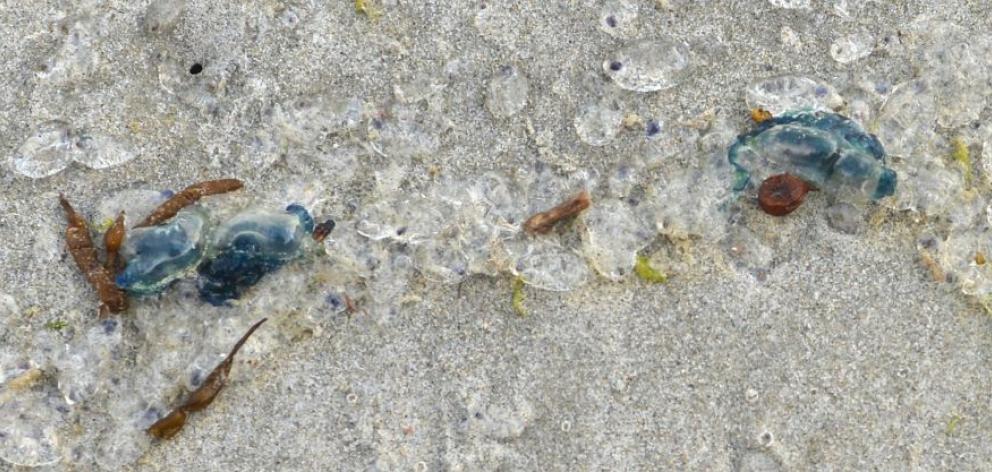
Hundreds of bluebottles were discovered washed up in front of the St Clair Surf Lifesaving Club late in the afternoon.
''They would have been floating past the coastline and been brought in by the winds and currents,'' Department of Conservation biodiversity ranger Jim Fyfe said last night.
''They're a species that float around in numbers, in a sort of flotilla, so you tend to see large groups of them when they do wash up on shore.''
Bluebottle stings can cause severe pain, leaving red welts on the skin for two or three days, and have been fatal in the past, although deaths are extremely rare.
''They've got stinging tentacles, although it's an irritating sting, rather than fatal,'' Mr Fyfe said.
''If people had an allergy, it could be serious. It's a good idea to wear a wetsuit if they're around. But, usually, by the time they've washed through the surf, the tentacles have broken off and they're not a problem.''
The bluebottle, or Portuguese man-of-war, is not a jellyfish, but a siphonophore, made up of many individual organisms which cannot survive independently.
They were not common in southern waters, Mr Fyfe said.
''I've seen them around here before, but you usually see them further up north. Our ones are usually smaller, too. The bladders on the ones up north can get two or three inches [5cm-7.5cm] long,'' he said.
''There is a lot of life in the water washing around the coast at the moment. I imagine it's sneaking across from the Tasman, through Foveaux Strait.''












